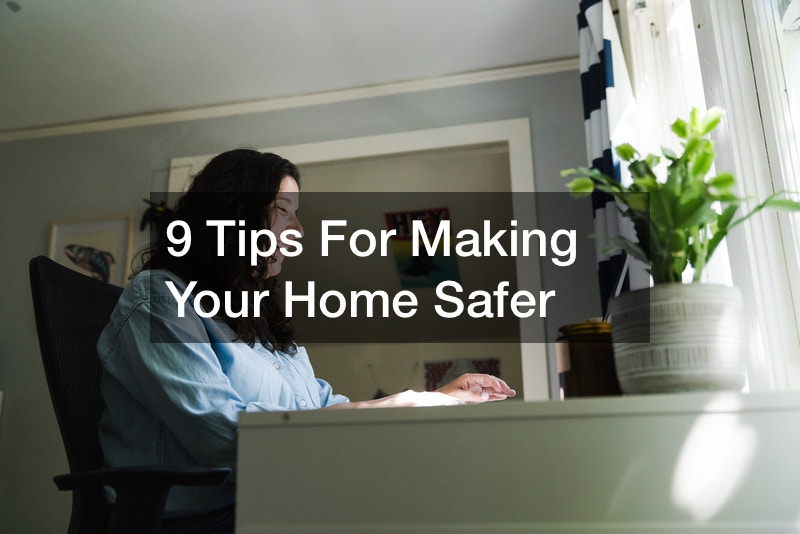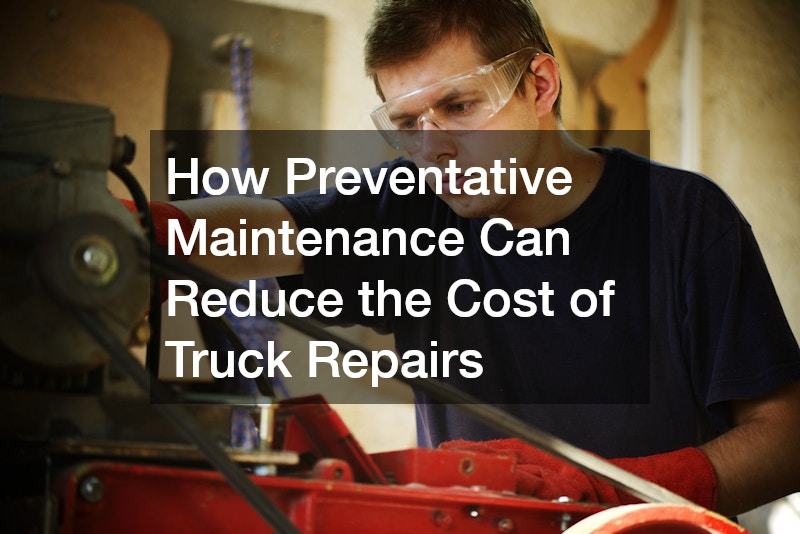
Your home is one of the biggest investments you may make in your lifetime. Protecting your investment involves setting up security measures that can create harm for your home and your family. Home safety can occur in a variety of ways to help you prevent illness, theft, and damage from natural disasters. There are some basic home safety instructions you can follow to protect yourself and your family from danger. Here are nine tips for making your home safer from a wide range of potential hazards.
Get an Alarm System
One of the best home safety instructions to consider is getting a burglar alarm system. According to statistics, there is a home being burglarized in the United States approximately every 23 seconds. Home security systems can not only protect you from home invaders, but other dangers as well. Many home security systems also include smoke and carbon monoxide detectors. If someone breaks in or a fire breaks out, the authorities will be instantly alerted to provide professional assistance.
You can also use home smart technology to help protect your home from invaders. With an app on your phone, you can control your home’s lighting to turn on when you are away and get alerts of any suspicious activity. You can view installed cameras from your home security system anytime through your phone no matter where you are. Use motion sensor lights to help deter burglars and detect suspicious activity. Make sure your doors and windows are always locked and reinforced door jambs for added protection.
You may also want to consider creating home safety instructions and plans in case your home security has been breached. Have a list of valuables ready in case you get robbed and etch your name on these items to make them easier to identify if they get stolen. Never directly confront a burglar directly, but memorize what they look like and what they’re wearing. Don’t post your vacation plans on social media and have someone available to pick up mail while you’re gone.

Fire Safety for Your Home
It’s also important to consider home safety instructions in case of fire to protect your family from harm. Have a fire plan in place with two escape routes for every room. Conduct fire drills at least twice a year or more, especially if you have children living at home. Replace batteries in smoke and carbon monoxide detectors at least once every year. Smoke alarms that are over 10 years old should be replaced with newer models. Keep furniture and other flammable household items away from heaters.
Make sure you have a fire extinguisher on every level of your home. Pay close attention whenever extinguishing candles or cigarettes. Never leave appliances unattended. Keep a list of contact information for firefighters, police, and poison control next to your phone. Clear any kitchen clutter away from your kitchen stove or radiators. Keep important documents and valuables stored safely in fire-resistant safes.
Install a Fence
TAnother one of the best home safety instructions to follow to protect your family is to install a fence around your front and backyard. Fences help provide privacy from nosy neighbors and other individuals. However, some types of fences are better than others. Tall privacy fences can make you a target for burglars because it is easy to hide behind. Choose a fence that isn’t easy to climb over or bypass by getting underneath or around it.
When purchasing a fence, you may want to ensure there are security locks for any gates or doors. As far as home safety instructions for fences, you may also want to add extra security measures. You can attach security cameras, outdoor lighting, and burglar alarms for extra protection. If you don’t know how to build a fence, you can hire an affordable fence builder to do the work for you. They can also recommend the best fencing types that will work best for your home and family.

Clear Precarious Trees
Your landscaping can create numerous safety hazards for you and your family. If your lawn is unkempt, it can be an invitation for burglars who think no one is living at the residence. It can also cause trips and falls for family members and visitors. Make sure your lawn is moved and bushes are trimmed where invaders can hide and lurk. Hire a professional tree removal landscaper to clear precarious trees that can cause damage to your roof.
Dead tree branches and debris can increase the risk for wildfires to start and damage your home. Trees located near power lines should be trimmed by licensed professionals. If the branches cause the power lines to fall, it can create an outage, increase the risk of electrocution, and damage sensitive electronic equipment in your home. If you use any cut trees for firewood, store the firewood at least 100 feet away from your home. Make sure that trees around your home don’t obstruct the vision of cars and pedestrians from street signs or other roadways.
Get Rid of Toxic Materials
Approximately 35% of renovations involve the entire home. If you are thinking about doing some upgrades, you may want to follow a few home safety instructions to protect you from hidden dangers. Your home may have hidden toxic materials that can significantly impact your family’s health. Older homes may require asbestos removal before any remodeling can be done. You may also want to have your home inspected for lead paint.
Mold and mildew can cause serious illnesses and significantly decrease your home’s property value. Use dehumidifiers to reduce humidity levels and make sure your home has adequate ventilation. If you notice mold growth, use mildew removal products or hire a professional to repair the damage. Since mold is caused by moisture, make sure to address any leaks that may have created the problem. Have your air ducts cleaned to ensure mold is not transported throughout the rest of your home.
Common household products that may be hazardous or toxic need to be disposed of properly for everyone’s safety. There are certain home safety instructions for the proper disposal of these materials. Household products that can be considered toxic include paint, batteries, pesticides, and household cleaners. You can safely dispose of these materials at hazardous waste collection centers in your local community, Some waste management companies will come directly to your home and pick up certain materials.

Watch Out for Pests
Pests can cause tremendous amounts of damage to your home and the safety of your family’s health. It’s important to consider a few pest control home safety instructions to keep critters away from your family and property. Practice preventative measures such as removing clutter and potential food sources that can be attractive to unwanted critters. Caulk gaps and openings around your home where rodents can get in and keep garbage cans tightly closed. Inspect your home for leaks and make any necessary repairs.
You may also want to hire a pest control company to spray your home on a regular basis to keep your home safe. Make sure to tell the professionals if they are children or pets in the home as the chemicals they use can be toxic. If you choose to tackle pest control on your own, there are natural repellents you can use to keep your family safe. Keep rodent traps, mothballs, other pest control products out of reach of pets and children. Make sure to dispose of leftover pesticides and containers by reading the home safety instructions on the labels or taking them to hazardous waste facilities.
Be Proactive About Maintenance
Keeping your home in good repair can significantly reduce your risks for safety vulnerabilities to your health and property. The first step to getting proactive about home maintenance is to get organized and create a checklist with home safety instructions for necessary repairs. You can find premade checklists online or you can make one on your own based on home inspections. You may want to hire a home inspector to help you identify any safety hazards so you can develop the best course of action. Another hire you may want to consider is a licensed contractor to address complicated issues you’re not experienced enough to handle.
One of the first home maintenance issues you may want to address is preventing potential water damage. Clean your gutters and inspect your foundation for cracks. Replace any broken or missing roof shingles and check the chimney for any signs of damage. Check your faucets and toilet for any signs of leaks or drips. Ensure that your sump pump is properly draining to avoid any backups from blockages.
Replace the air filters on your furnace or HVAC system and have ducts professionally cleaned. Vacuum out dirt from your dryer vent to prevent accidental household fires. Your home’s electrical system can create numerous safety risks without proper maintenance. When it comes to residential electrical work, you should hire a professional rather than trying to do the work yourself. Replace faulty appliances and throat out any damaged electrical cords. Limit your use of extension cords and avoid overcrowding outlets.

Sanitize Everything
With the recent COVID-19 pandemic, disinfecting and sanitizing your home is crucial for the health of your family. There are certain home safety instructions from the CDC that you can follow to sanitize everything. You can also choose to hire a professional sanitizing service to disinfect your home in order to protect your family’s health. While sanitization is great for killing germs, there is a risk that these cleaning supplies can cause some unintentional effects when it comes to your family’s health. According to research, poison control centers have seen a 20% increase in calls regarding bleach, disinfectants, and hand sanitizers.
To avoid accidental poisoning, be sure to keep these products out of the reach of children and pets. To sanitize your home effectively, make sure to clean and disinfect all commonly touched surfaces in your home. These include rails, remotes, computers, tables, refrigerator doors, and doorknobs. You should sanitize high-touch surfaces several times throughout the day. Use CDC-approved cleaning and disinfecting products and make sure to read the labels carefully before use.
You should also know the home safety instructions on how to clean and disinfect properly. Wipe down surfaces first with a cleaning spray or soapy water and a hand towel to remove dust or contaminants. Apply a disinfectant by using a wipe or spray afterward and let dry naturally. You can disinfect your computer and other sensitive electronic equipment using a 70% isopropyl alcohol solution and a soft towel. If you are using bleach as a disinfectant, be sure to open your windows for ventilation and wear gloves.
Food Safety in Your Home
Following home safety instructions related to food can help protect you and your family from injuries and food-borne illnesses. Make sure your kitchen is clean to avoid attracting rodents and creating conditions for bacteria and viruses to grow. Practice proper food safety techniques to prevent cross-contamination by keeping raw meats and fish away from vegetables and cooked meats. Thaw frozen food thoroughly before use by using the refrigerator, cold water, or the microwave. Use a thermometer to ensure foods are properly cooked at the right temperatures.
Wash your hands before cooking or handling raw meat. Clean up food spills immediately while you’re cooking. Scrub vegetables thoroughly before cutting or peeling. Never leave food out for more than an hour or two to prevent the possibility of getting sick. Label leftovers and include the date it was cooked. Be careful when using knives and other sharp kitchen utensils to avoid potential injury. Use non-slip kitchen mats instead of rugs to prevent accidental trips and falls.
It’s crucial to keep your home and property healthy and protected from danger. Home safety takes a significant amount of work, but it’s worth the time and financial costs when you consider everything that’s at stake. Use these home safety instructions to protect your most valued people and possessions safe from harm. While you may not be able to protect your home from every possible danger, following these tips will give you greater peace of mind. Get started making your home safer today.




